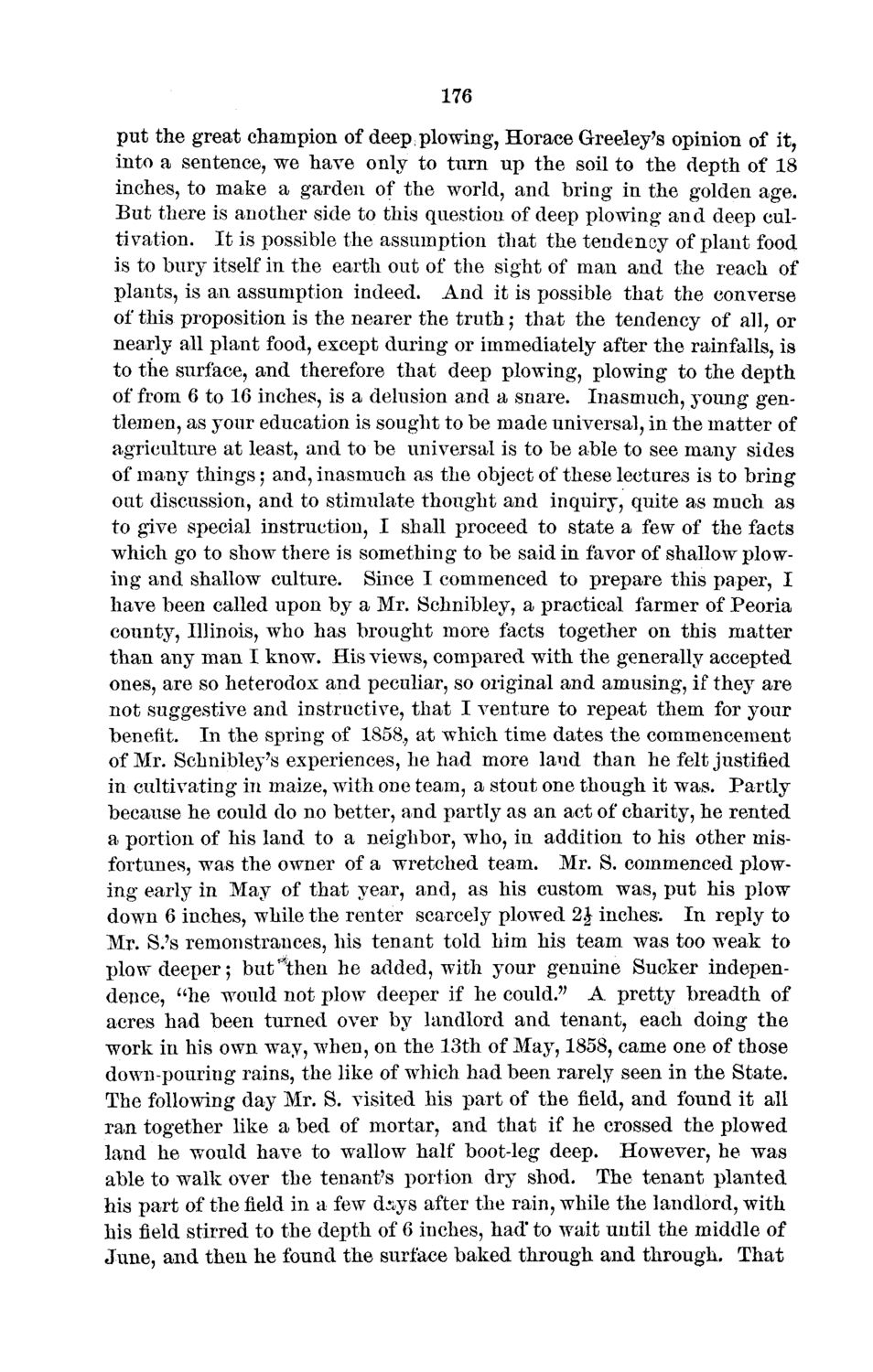| |
| |
Caption: Board of Trustees Minutes - 1872
This is a reduced-resolution page image for fast online browsing.

EXTRACTED TEXT FROM PAGE:
176 put the great champion of deep plowing, Horace Greeley's opinion of it, into a sentence, we have only to turn up the soil to the depth of 18 inches, to make a garden of the world, and bring in the golden age. But there is another side to this question of deep plowing and deep cultivation. It is possible the assumption that the tendency of plant food is to bury itself in the earth out of the sight of man and the reach of plants, is an assumption indeed. And it is possible that the converse of this proposition is the nearer the truth ; that the tendency of all, or nearly all plant food, except during or immediately after the rainfalls, is to the surface, and therefore that deep plowing, plowing to the depth of from 6 to 16 inches, is a delusion and a snare. Inasmuch, young gentlemen, as your education is sought to be made universal, in the matter of agriculture at least, and to be universal is to be able to see many sides of many things 5 and, inasmuch as the object of these lectures is to bring out discussion, and to stimulate thought and inquiry, quite as much as to give special instruction, I shall proceed to state a few of the facts which go to show there is something to be said in favor of shallow plowing and shallow culture. Since I commenced to prepare this paper, I have been called upon by a Mr. Sehnibley, a practical farmer of Peoria county, Illinois, who has brought more facts together on this matter than any man I know. His views, compared with the generally accepted ones, are so heterodox and peculiar, so original and amusing, if they are not suggestive and instructive, that I venture to repeat them for your benefit. In the spring of 1858, at which time dates the commencement of Mr. Schnibley's experiences, he had more land than he felt justified in cultivating in maize, with one team, a stout one though it was. Partly because he could do no better, and partly as an act of charity, he rented a portion of his land to a neighbor, who, in addition to his other misfortunes, was the owner of a wretched team. Mr. S. commenced plowing early in May of that year, and, as his custom was, put his plow down 6 inches, while the renter scarcely plowed 2 J inches-. In reply to Mr. S.7s remonstrances, his tenant told him his team was too weak to plow deeper; but^then he added, with your genuine Sucker independence, "he would not plow deeper if he could." A pretty breadth of acres had been turned over by landlord and tenant, each doing the work in his own way, when, on the 13th of May, 1858, came one of those down-pouring rains, the like of which had been rarely seen in the State. The following day Mr. S. visited his part of the field, and found it all ran together like a bed of mortar, and that if he crossed the plowed land he would have to wallow half boot-leg deep. However, he was able to walk over the tenant's portion dry shod. The tenant planted his part of the field in a few d^ys after the rain, while the landlord, with his field stirred to the depth of 6 inches, had' to wait until the middle of June, and then he found the surface baked through and through. That
| |